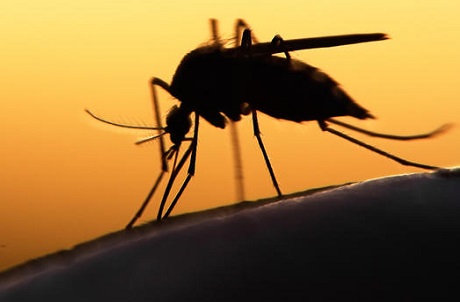Health expert: “Low chance" Zika virus could spread to Georgia

The head of Georgia’s National Center for Disease Control and Public Health (NCDC) says the potential for the Zika virus to spread to Georgia was small but there was a "theoretical” chance it could happen.
At a special press conference this afternoon NCDC head Amiran Gamkrelidze said the Zika virus "has never been reported” in Georgia, and the Aedes species of mosquito – which predominantly transmits the virus – were "very rare” in the country.
His comments come one day after the World Health Organisation (WHO) said the Zika virus could spread to Europe this summer, although the likelihood of an outbreak was "low to moderate”.
The WHO said areas most at risk were those where Aedes mosquitoes may spread the virus, such as the Black Sea coast of Russia and Georgia, and the island of Madeira in Portugal.
I must stress there is no ground for panic in Georgia about the virus as there are no infected individuals reported in the country. We are well prepared so we don’t miss such cases,” said Gamkrelidze.
Any chance of the virus spreading is theoretical as the mosquito which spreads the virus is detected in several of Georgia’s seaside regions but an infected person must exist and the mosquito must bite him or her to spread the virus,” Gamkrelidze explained.

NCDC head Amiran Gamkrelidze said the Zika virus "has never been reported” in Georgia.
About the Zika virus:
- Zika virus disease (Zika) is a disease caused by the Zika virus, which is spread to people primarily through the bite of an infected Aedes species mosquito.
- The most common symptoms of Zika are fever, rash, joint pain, and conjunctivitis (red eyes).
- The illness is usually mild with symptoms lasting for several days to a week after being bitten by an infected mosquito.
- People usually don’t get sick enough to go to the hospital, and they very rarely die of Zika. For this reason, many people might not realize they have been infected.
- The Zika virus infection poses major threats to pregnant women as it can cause serious birth defects such as microcephaly, as well as other severe fetal brain defects.
- Once a person has been infected, he or she is likely to be protected from future infections.
* Source US Centres for Disease Control and Prevention.
Gamkrelidze said despite the small chance the virus could spread in Georgia, the Ministry of Health and other agencies were carrying out major disinfection works in Georgia’s western seaside regions. The disinfection targeted all types of insects that were more active in summer.
Georgia was also prepared to test people suspected of contracting the Zika virus. Gamkrelidze said the Lugar Laboratory in Tbilisi owned modern medical equipment to test possible victims and reveal the victims in "the fastest manner”.
Since May 2015 Brazil has experienced a significant outbreak of Zika virus. In recent months, Brazilian officials reported an increase in the number of babies born with microcephaly, a birth defect where a baby’s head is smaller than expected when compared to babies of the same sex and age. Babies with microcephaly often have smaller brains that might not have developed properly.
Pregnant women can be infected with Zika virus
- The primary way that pregnant women get Zika virus is through the bite of an infected mosquito.
- The Zika virus can also be spread by a man to his sexual partners.
A pregnant woman can pass Zika virus to her fetus
- The Zika virus can be passed from a pregnant woman to her fetus during pregnancy or at delivery.
* Source US Centres for Disease Control and Prevention.
 Tweet
Tweet  Share
Share